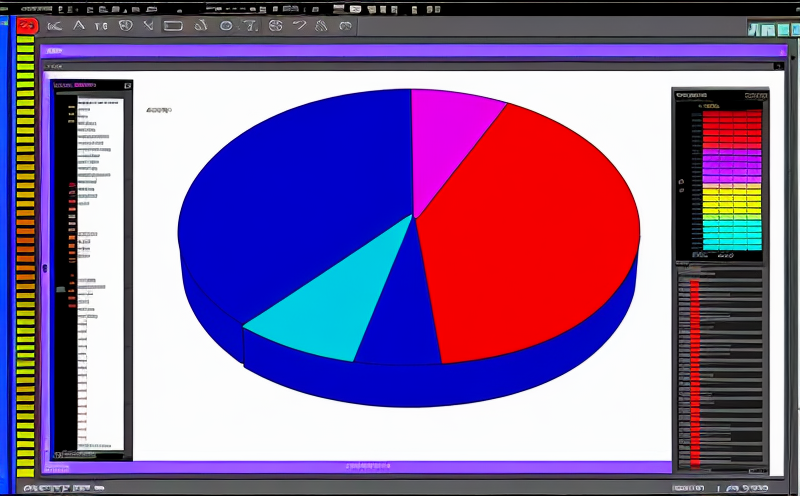ISO 2008 Glass Transition Temperature Testing of Polymers
The determination of glass transition temperature (Tg) is a critical aspect in the quality control and R&D processes for polymers. ISO 2007 and its counterpart, ASTM D3418, are widely recognized standards that provide methodologies to measure Tg. However, ISO 2008 introduces an alternative method that offers enhanced precision, especially for complex polymer systems.
The glass transition temperature is the point at which a material changes from a solid-like state to a rubbery or viscous state. For polymers, this phase change impacts their mechanical properties significantly. Understanding Tg helps in selecting appropriate materials for specific applications and ensures that products meet stringent industry standards.
The ISO 2008 method utilizes differential scanning calorimetry (DSC) to measure the heat flow into a sample as it is heated or cooled at a constant rate. This technique allows for accurate determination of the onset, midpoint, and end of Tg. The precision and accuracy of this test are paramount in industries where material performance under temperature variations is crucial.
The testing procedure involves precise specimen preparation, which includes ensuring uniformity and purity to avoid any extraneous effects on the results. Samples must be dried if they contain moisture, as water can significantly influence Tg. The sample is then placed in a crucible within the DSC instrument, where it is heated at a controlled rate.
The DSC records the heat flow as a function of temperature, which allows for the identification of the glass transition region. This process can be challenging due to overlapping transitions or broad endotherms, requiring skilled technicians and sophisticated instrumentation. Our laboratory ensures that every test adheres strictly to ISO 2008 guidelines to provide reliable data.
Our expertise in this area is rooted in our state-of-the-art facilities equipped with high-precision DSC equipment. We employ a team of certified professionals who are adept at handling complex samples and ensuring accurate results. The service also includes detailed reports that outline the test conditions, observed phenomena, and conclusions drawn from the data.
The importance of Tg testing extends beyond quality control to R&D efforts aimed at optimizing material properties for various applications. By understanding how temperature affects a polymer's behavior, manufacturers can tailor materials to meet specific performance requirements more effectively. This knowledge is particularly valuable in industries such as automotive, aerospace, and medical devices.
In summary, ISO 2008 Glass Transition Temperature Testing of Polymers is an essential service for ensuring product reliability and compliance with international standards. Our comprehensive approach ensures that clients receive accurate and actionable data to support their decision-making processes.
Benefits
- Precision in Measurement: The method provides high accuracy and precision, which are crucial for reliable product performance assessment.
- Compliance Assurance: Ensures that the tested materials comply with international standards such as ISO 2008, ASTM D3418, and others.
- Enhanced Material Selection: Helps in selecting appropriate polymers for specific applications based on their Tg characteristics.
- Informed Decision-Making: Provides data that supports informed decisions regarding product design, quality control, and process optimization.
Customer Impact and Satisfaction
The service directly impacts the quality of products by providing accurate Tg values. This enables manufacturers to meet stringent industry standards and improve product performance. Customer satisfaction is a key priority, as we ensure that our services are tailored to meet individual client needs. Regular communication with clients ensures that their expectations are met, leading to long-term partnerships.
We understand the importance of timely delivery and strive to provide results within specified deadlines. Our commitment to excellence in every aspect of our service contributes significantly to customer satisfaction. Positive feedback from satisfied customers is a testament to our dedication and expertise in ISO 2008 Glass Transition Temperature Testing of Polymers.
Competitive Advantage and Market Impact
Understanding the Tg of polymers is crucial for maintaining a competitive edge in the market. By accurately determining this critical property, manufacturers can optimize their products' performance under various temperature conditions.
This service allows companies to stay ahead of competitors by ensuring that their materials meet or exceed industry standards. Accurate Tg data is essential for product development and quality assurance processes, which are vital in maintaining a robust market position.
The ability to provide precise and reliable testing results enhances the reputation of companies using our services. This positive perception can lead to increased customer trust and loyalty, thereby contributing to long-term success in the competitive marketplace.





